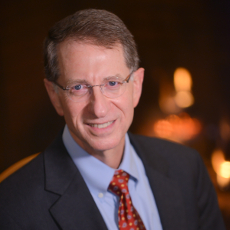 It is not uncommon to hear physicians saying they would not want their children to become physicians. Of course, there are many reasons mentioned such as loss of autonomy, high cost that can lead to high debt, time commitment and decreasing incomes. Even with these concerns, there is no shortage of applicants to U.S. medical schools. In 2018 – 2019, 21,622 applicants were accepted to allopathic (MD) medical schools out of the 52,777 who applied, for an overall acceptance rate of 41%. According to the Association of American Medical Colleges, this is the highest number of applications ever. So even with all the negative concerns about the future of medicine in the U.S., it is not affecting the number of young men and women wanting to become doctors.
It is not uncommon to hear physicians saying they would not want their children to become physicians. Of course, there are many reasons mentioned such as loss of autonomy, high cost that can lead to high debt, time commitment and decreasing incomes. Even with these concerns, there is no shortage of applicants to U.S. medical schools. In 2018 – 2019, 21,622 applicants were accepted to allopathic (MD) medical schools out of the 52,777 who applied, for an overall acceptance rate of 41%. According to the Association of American Medical Colleges, this is the highest number of applications ever. So even with all the negative concerns about the future of medicine in the U.S., it is not affecting the number of young men and women wanting to become doctors.
How are residents feeling about their decision to go into medicine? Did they make the right choice, now that they’ve finished medical school and are “playing” doctor? Recently Medscape invited residents to answer an online survey on lifestyle and happiness. More than 2,200 U.S. residents in 30-plus specialties took the survey in the spring of 2019. The majority of respondents were between the ages of 30 and 34 years. Men were 61% of the respondents and 39% were women. Not surprisingly, the vast majority were working in a hospital.
Let’s look at some of the interesting responses, which may give us a snapshot of the mindset of the physicians who will probably be taking care of us in our old age. Whether they were in their first year of residency or their eighth, they found the most rewarding part to be the clinical knowledge and experience they are receiving. Rating the lowest for all residency years is the potential for making good money as a doctor. Personally, I think this bodes well and suggests these individuals went into medicine for the right reasons.
More insights from the EMD:
Not surprisingly, the biggest challenges for all resident levels were work/life balance and dealing with time pressures and demands. Undoubtedly, that is not going to change as they progress in their medical career. The next most common challenge is very disturbing, with 14% worried about debt. This issue in medical training in the U.S. is affecting the choices that residents are making in specialties and moving them away from private practice ownership. This may explain the second key factor in looking at their first job: starting salary/compensation. The first key factor was work schedule/call hours related to work/life balance. I don’t believe this would have been the first consideration for physicians who are now in their 50s and 60s. I think what we are seeing is the continued transition of medicine from a career to a job. There is nothing wrong with this change, and hopefully this will reduce burnout in physicians.
Residency can be very stressful, though the changes in work hours appear to be helpful. When these residents were asked if they had enough time for a satisfying social life, about 50% said “sometimes.” “Always” or “most of the time” were at 19%. When asked about depression, “always/most of the time” was at 8%, while 29% answered “sometimes,” and when residents were queried about considering suicide, 11% had thoughts of it but had not attempted suicide and 4% preferred not to answer. These answers point out the need for hospitals to have programs to address these issues and give help to physicians and residents. Almost 60% of residents answered there are such programs in place. It won’t be perfect until 100% of programs have them and all residents who need help can get it.
Following medical school and now into residency, were these residents still looking forward to working as doctors? The exciting news here is that 86% answered that question in the affirmative. Even with all the negatives we see and hear about the practice of medicine, I find this answer still tells me that going into medicine is the right decision today, just as it was 45 years ago for me. If your child really wants to pursue medicine for the right reasons, then they should be encouraged.
Michael Blaiss, MD, FACAAI, Executive Medical Director
